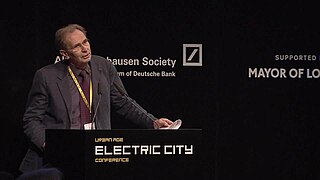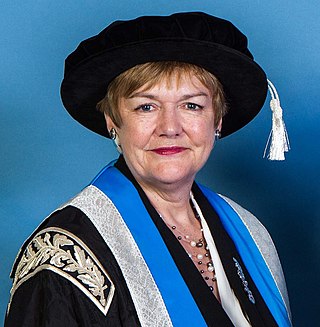Related Research Articles

Bhikhu Chotalal Parekh, Baron Parekh, is a British political theorist, academic, and life peer. He is a Labour Party member of the House of Lords. He was Professor of Political Theory at the University of Hull from 1982 to 2001, and Professor of Political Philosophy at the University of Westminster from 2001 to 2009. He served as president of the Academy of Social Sciences from 2003 to 2008.

Matthew Taylor is a British former political strategist and current Chief Executive of the NHS Confederation, having previously led the Royal Society for the Encouragement of Arts, Manufactures and Commerce (RSA) in the United Kingdom between 2006 and 2021. In 2005, he was appointed by incumbent Prime Minister Tony Blair as head of the Number 10 Policy Unit. He is a writer, public speaker and broadcaster who has been a panellist on BBC Radio 4's The Moral Maze since 2008. In October 2016, he was appointed Chair of the Review of Modern Employment established by Prime Minister Theresa May; the Taylor Review report Good Work was published in July 2017.

Douglas James Davies, is a Welsh Anglican theologian, anthropologist, and academic, specialising in the history, theology, and sociology of death. He is Professor in the Study of Religion at the University of Durham. His fields of expertise also include anthropology, the study of religion, the rituals and beliefs surrounding funerary rites and cremation around the globe, Mormonism and Mormon studies. His research interests cover identity and belief, and Anglican leadership.
The Academy of Social Sciences is a representative body for social sciences in the United Kingdom. The Academy promotes social science through its sponsorship of the Campaign for Social Science, its links with Government on a variety of matters, and its own policy work in issuing public comment, responding to official consultations, and organising meetings and events about social science. It confers the title of Fellow upon nominated social scientists following a process of peer review. The Academy comprises over 1000 Fellows and 41 learned societies based in the UK and Europe.

John Richard Urry was a British sociologist who served as a professor at Lancaster University. He is noted for work in the fields of the sociology of tourism and mobility.

Professor Pamela Gillies is a Scottish academic and educator who was appointed Principal/Vice-Chancellor of Glasgow Caledonian University in March 2006.
Symbolic Interaction is a quarterly peer-reviewed academic journal published by Wiley-Blackwell. It was established in 1978, originally published by the University of California Press, and covers research and theoretical developments concerned with symbolic interactionism. It is the official publication of the Society for the Study of Symbolic Interaction. The editor-in-chief is Robert Dingwall.

John David Brewer HDSSc, MRIA, FRSE, FAcSS, FRSA is an Irish-British sociologist who was the former President of the British Sociological Association (2009–12), and has been the Professor of Post Conflict Studies in the Senator George J. Mitchell Institute for Global Peace, Security and Justice at Queen's University Belfast (2013–present), Honorary Professor Extraordinary, Stellenbosch University (2017–present) and Honorary Professor of Sociology, Warwick University (2021–present). He was formerly Sixth-Century Professor of Sociology at the University of Aberdeen (2004–13). He is a member of the United Nations Roster of Global Experts for his work on peace processes (2010–present). He was awarded an honorary doctorate in 2012 from Brunel University for services to social science.
The Department of History and Philosophy of Science (HPS), of the University of Cambridge is the largest department of history and philosophy of science in the United Kingdom. A majority of its submissions received maximum ratings of 4* and 3* in the 2014 REF. Located in the historic buildings of the Old Physical Chemistry Laboratories on Free School Lane, Cambridge, the department teaches undergraduate courses towards the Cambridge Tripos and graduate courses including a taught Masters and PhD supervision in the field of HPS. The department shares its premises with the Whipple Museum and Whipple Library which provide important resources for its teaching and research.
The Campaign for Social Science was launched in 2011 to advocate social science to the UK Government and to the public, at a time of significant change in the higher education system. It campaigns for the restoration of the post of Government Chief Social Science Advisor, promotes social science in the media and on the web, and organises roadshows and other events to emphasise the value of social science.

The School of Social and Political Science (SSPS) at the University of Edinburgh is a unit within the College of Arts, Humanities and Social Sciences. Its constituent departments conduct research and teaching in the following disciplines:
Barbara Jane Elliott is a British sociologist and academic. She is Professor of Sociology at the University of Exeter. From October 2014 to September 2017 she was chief executive of the Economic and Social Research Council. Her research uses longitudinal, qualitative and quantitative methodologies to explore issues of gender and employment.
Adam Tickell FAcSS is a British economic geographer, whose work explores finance, English local governance, and the politics of ideas. He is Vice-Chancellor of the University of Birmingham, and was formerly Vice-Chancellor of the University of Sussex. He also edited the Transactions of the Institute of British Geographers.
John William Offer is a British sociologist who serves as Professor of Social Theory and Policy at Ulster University. His most recent book is Social Policy and Welfare Pluralism: Selected Writings of Robert Pinker, jointly edited by John Offer and Robert Pinker, published by Policy Press in 2017. Beginning in October, 2021 he will hold a Leverhulme Trust Major Research Fellowship for the project 'Spencer's Sociology: A Study in Retrieval and Revival'.
Alan Christopher Walker, CBE, FBA, FRSA, FAcSS is a British academic, social scientist and public health administrator. Since 1985, he has been Professor of Social Policy and Social Gerontology at the University of Sheffield.
The New and Emerging Respiratory Virus Threats Advisory Group (NERVTAG) is an advisory body that advises the United Kingdom Government's Chief Medical Advisor / Chief Medical Officer for England, who in turn advises the UK Department of Health and Social Care and relevant ministers regarding threats from viral respiratory tract infections. The body replaced the UK Scientific Pandemic Influenza Advisory Committee (SPI) as part of a move to expand the scope to cover the threat of other respiratory viruses, besides pandemic influenza. The inaugural meeting was held on 19 December 2014 where the terms of reference were agreed. The group has been advising the Department of Health for some years and minutes of meetings are now regularly published, backdated to 2014. As of 2020, the group has been advising specifically on the COVID-19 pandemic.

Sir Jonathan Stafford Nguyen-Van-Tam is a British healthcare professional specialising in influenza, including its epidemiology, transmission, vaccinology, antiviral drugs and pandemic preparedness.
Edward William Peck is vice-chancellor of Nottingham Trent University. Brought up in Skelmersdale, he was educated at Ormskirk Grammar School, and the University of Bristol, graduating with a degree in Philosophy in 1981. He subsequently undertook graduate studies at Bristol Polytechnic and the University of Nottingham focusing on Health Services Management and Social Policy.
Debra J. Umberson is an American sociologist. She is a professor of sociology at the University of Texas at Austin and director of the Population Research Center.
Andrew Webster (1951–2021) was an English sociologist who was a professor of sociology at the University of York, where he established the Science and Technology Studies research unit. He studied the sociocultural and economic implications of introducing biomedical technologies, including stem cell research and regenerative medicine, into clinical settings.
References
- 1 2 3 4 5 6 "NERVTAG_Member_Bios_update_November2018" (PDF). gov.uk. November 2018. Retrieved 8 May 2020.
- ↑ "New and Emerging Respiratory Virus Threats Advisory Group". GOV.UK. Retrieved 4 May 2020.
- 1 2 3 4 5 6 "ROBERT WILLIAM JAMES DINGWALL - Curriculum Vitae". Academia.edu. Retrieved 21 July 2021.
- ↑ 'Cambridge University tripos results: Law, social sciences, architecture, education', The Times, 29 June 1971, p. 26.
- 1 2 "Robert Dingwall". The Conversation. Retrieved 21 July 2021.
- 1 2 3 "Robert Dingwall Professor School of Social Sciences". Nottingham Trent University. Retrieved 8 May 2020.
- 1 2 Dingwall, R. (1974). The social organisation of health visitor training. E-Thesis Online Service (Ph.D). The British Library. Retrieved 21 July 2021.
- ↑ "Professor Robert Dingwall FAcSS". Academy of Social Sciences. Retrieved 21 July 2021.
- 1 2 3 Hope, Christopher (7 May 2020). "Government has 'terrorised' Britons into believing coronavirus will kill them, says adviser". Telegraph Media Group Limited.
- ↑ Mendick, Robert (18 June 2020). "'Environment of fear': Scientists criticise modelling that predicted 120,000 winter deaths". Telegraph Media Group Limited.
- ↑ "COVID-19 confirmed deaths in England (to 31 March 2021): report". GOV.UK. Public Health England. Retrieved 21 July 2021.